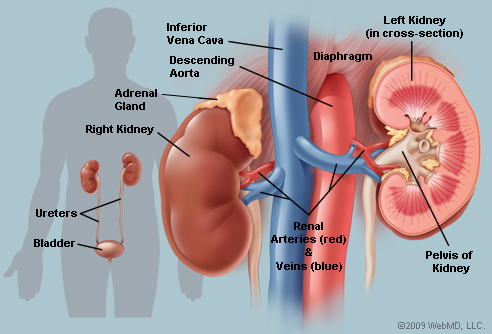By Dr Partha Pradeep Shetty
New Delhi– Kidney disease is a major healthcare burden in both the developing and the developed world with a global prevalence of approximately 850 million people worldwide. The modifiable risk factors for the development of kidney disease are on the rise, which mainly include lifestyle diseases, which are not often closely monitored and treated appropriately.
The global burden of Chronic Kidney Disease (CKD) is increasing and is projected to become the 5th most common cause of deaths globally by 2040. Chronic Kidney Disease is a major cause of catastrophic health expenditure. The cost of dialysis and transplantation consume 2-3 per cent of the annual healthcare budget in high-income countries; spent on less than 0.03 per cent of the total population of these countries. In low-income and middle-income countries, most people with kidney failure have insufficient access to lifesaving dialysis and kidney transplantation.
Diseases like diabetes, obesity and hypertension are on the rise and in many centres, more so in the developing world, are not adequately treated and monitored, leading to a rise in the incidence and also in the acceleration of kidney disease in select populations. Use of native and alternate forms of medicines to treat non-kidney ailments and use of painkillers and kidney toxic antibiotics often results in kidney disease which adds tremendously to the global burden.
This year World Kidney Day it becomes important to raise awareness of the increasing burden of kidney diseases worldwide and strive for kidney health for everyone, everywhere. World kidney day 2020 aims at primary prevention that is making attempts to prevent or delay the onset of kidney disease in the select at risk populations and also aims at secondary prevention that includes early diagnosis and treatment of kidney ailments, some of which if treated on time can completely reverse kidney disease.
Tertiary prevention translates to management of mortality and morbidity by treating advanced disease like early and timely institution of renal replacement therapies in the form of dialysis and kidney transplant, respectively.
Primary prevention of kidney disease requires the modification of risk factors, including diabetes mellitus and hypertension, unhealthy diets, structural abnormalities of the kidney and urinary tracts, or nephrotoxicity levels. Preventative primary interventions include promoting healthy lifestyles, including physical activity and healthy diets, screening for patients at higher CKD risk with the aid of urine and blood tests and keeping screening data in a CKD registry.
In persons with pre-existing kidney disease, secondary prevention, including blood pressure optimization and glycemic control, is the main goal of education and clinical interventions which can be achieved by low salt, protein, as well as plant and pharmacotherapy.
In patients with advanced CKD, management of co-morbidities such as uremia and cardiovascular disease is of high priority.
Towards the importance of the “Prevention approach” of kidney diseases and kidney failures to be recognized, state healthcare departments and hospitals need to initiate promotion programmes for healthcare professionals, including nephrology fellowship programs and non-specialist training; effective and efficient education and awareness programs for the general population and partnerships for patient empowerment are key.
Patient empowerment is more applicable to the developing world which mainly includes increasing patient awareness regarding usage of potentially harmful agents and also performing periodic testing for the presence of the development of kidney disease. (IANS)
















